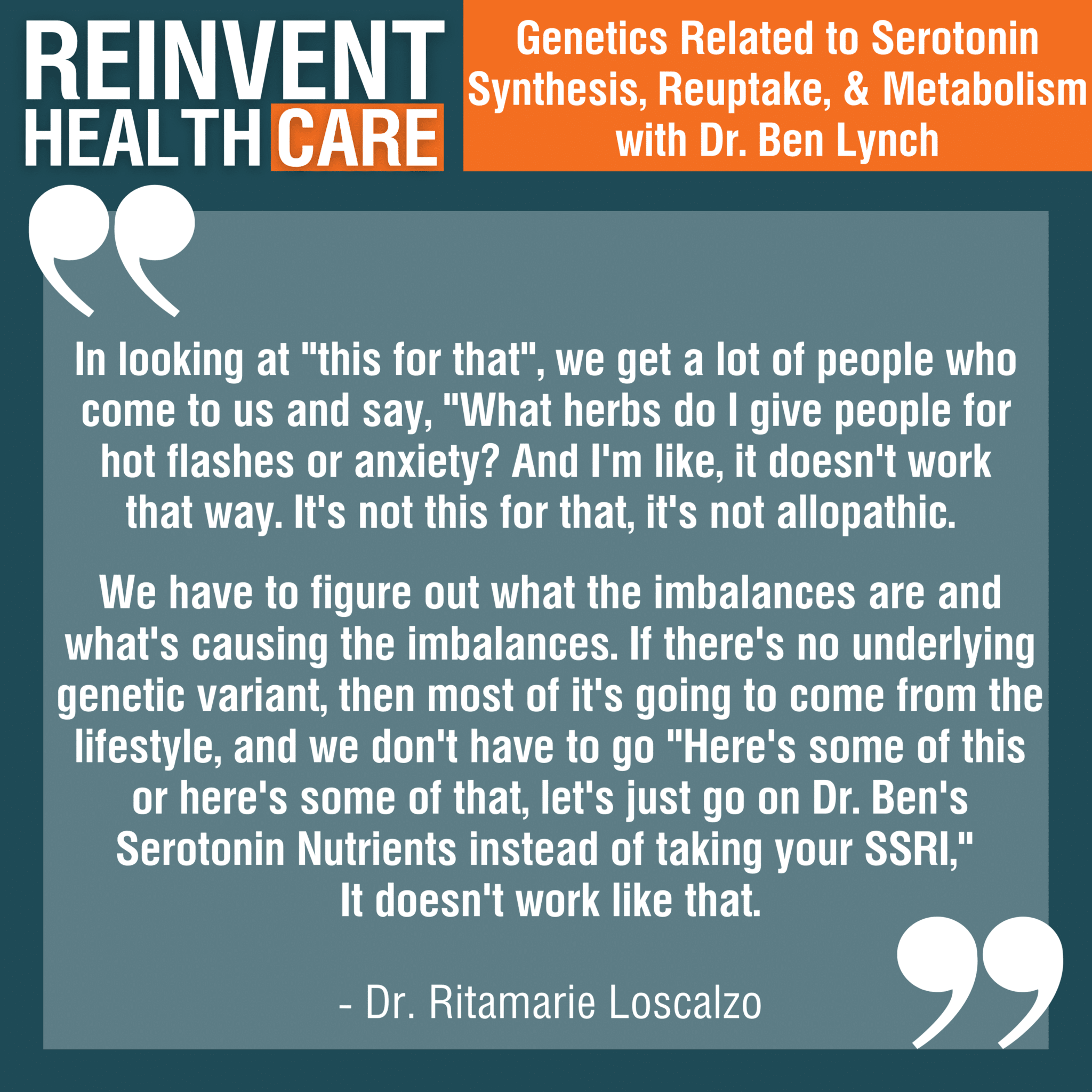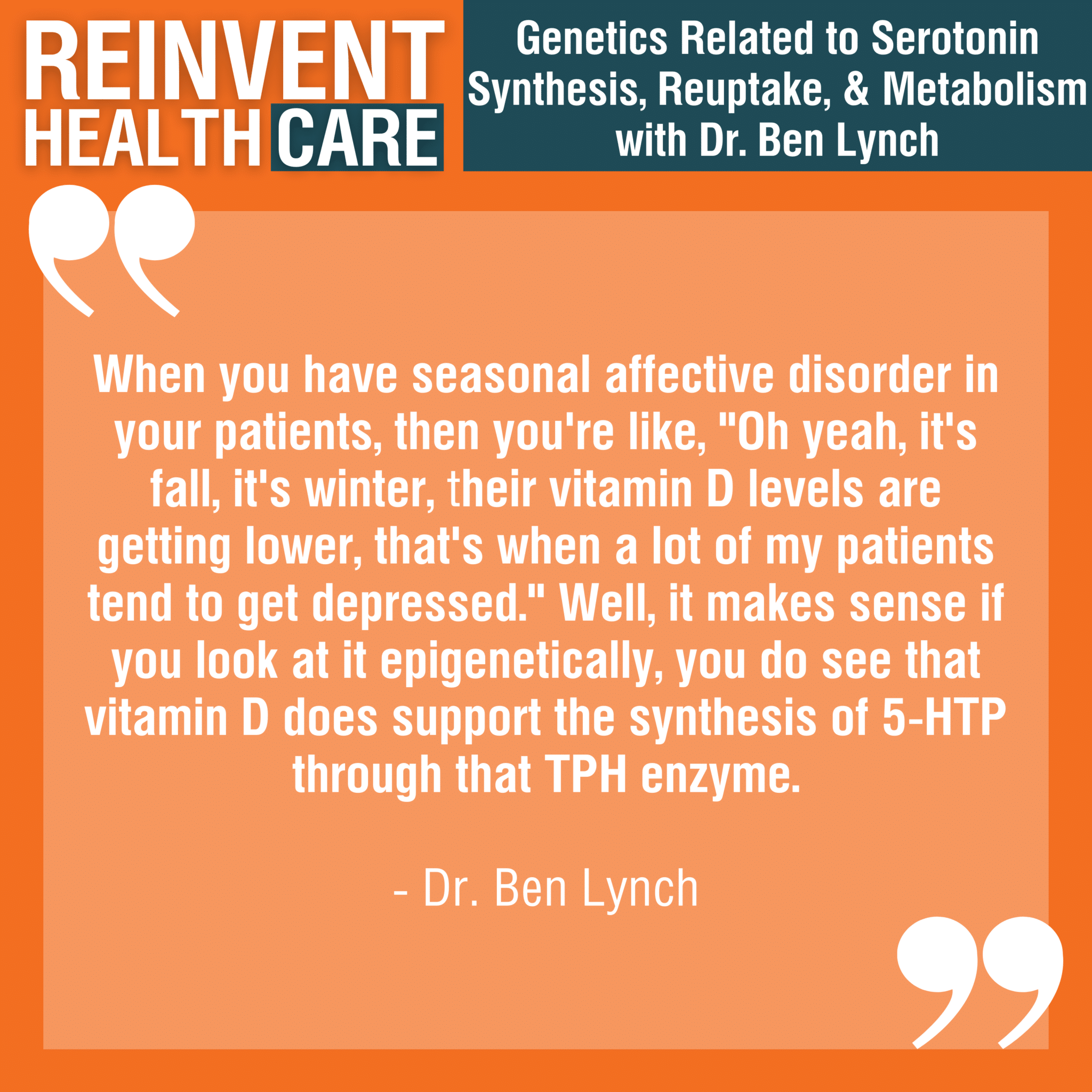Genetics Related to Serotonin Synthesis, Reuptake, and Metabolism
IN THIS EPISODE:
Key Genes in Serotonin Synthesis
Serotonin is a neurotransmitter that plays a crucial role in regulating mood, behavior, and various physiological processes. Practitioners learning about important genes related to serotonin synthesis should focus on genes such as TPH1 and TPH2, which encode the enzymes tryptophan hydroxylase 1 and 2, respectively. These enzymes are responsible for converting the amino acid tryptophan into 5-hydroxytryptophan (5-HTP), a precursor molecule in serotonin synthesis. TPH1 is primarily expressed in peripheral tissues, while TPH2 is predominantly found in the brain.
Genes Involved in Serotonin Reuptake
Serotonin reuptake transporters are proteins that remove serotonin from the synaptic cleft, terminating its signaling and regulating serotonin levels. The serotonin transporter gene (SLC6A4), also known as the serotonin transporter or SERT gene, is a crucial gene in this process. Variations in the SLC6A4 gene, such as the 5-HTTLPR polymorphism, have been associated with altered serotonin reuptake efficiency and have been implicated in various psychiatric disorders and individual differences in emotional and behavioral traits.
Understanding Serotonin Metabolism
After serotonin is released into the synaptic cleft, it undergoes degradation by the enzyme monoamine oxidase (MAO). Two forms of MAO, MAOA and MAOB, are responsible for metabolizing serotonin. Practitioners should consider these genes when studying serotonin metabolism. Variations in the MAOA gene have been linked to altered enzyme activity and have been associated with aggression and impulsive behavior. Understanding the genetic factors influencing serotonin metabolism and the nutrient cofactors that are necessary for metabolism can provide insights into lifestyle factors and nutrients that can assist clients in managing their care.
RESOURCES:
Dr. Ben Lynch
- Follow Dr. Ben Lynch on Instagram here.
- Check out Dr Ben’s Seeking Health website here.
- If you want to learn more about Dr. Ben Lynch and check out his book, Dirty Genes, click here.
ReInvent Healthcare
- Get our FREE Guide to Taking a Detailed Health History that gets you to root causes with ease.
- Access Additional Resources for Practitioners ready to improve clinical outcomes through our Nutritional Endocrinology Practitioner Training.








